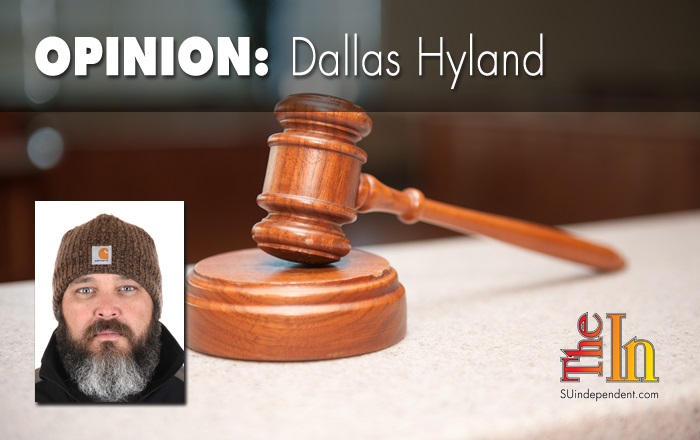A couple of years ago, I was in a documentary film class at the local establishment of supposed higher learning. My good friend and colleague, Phil Tuckett, was the instructor, and he laid out a course that would be very hands-on.
In the first week, each of us would pitch an idea for a documentary film, and then the class would vote. The winning idea would become the class project, with the person who came up with it being the director and the rest of the class assuming various film production roles.
It was the origin of the now-developing facet of my documentary career, filmmaking.
In any case, I pitched an idea for a film about the history and culture of craft brewing in Utah. Many people, myself included, believe that there are some breweries in the state that produce some of the finest microbrews in the world.
When I finished describing the project, I was given some feedback and asked a few questions. One was, “Why would we want to make a film about beer? We’re all Mormon.”
“Apparently, not all of us,” I replied.
Now, before you go off half-cocked and dismiss me carte blanche, accusing me of trying to get my reads up by bashing Mormons, let me assure you that my point of contention has nothing to do with the faith itself, or any faith for that matter. But rather, the dogma that insists everyone must live in accordance with its creeds and the sheer hypocrisy of the notion in a country where free will and freedom granted by governing documents assures us we do not have to.
Also, just in case you are about to pitch me the “if you don’t like it, leave” admonition, let me retort in advance that you can kiss my hairy Irish ass on that one. If you do not like the Constitutional principles of this land, including the fact that they govern Utah, no matter how bad it wishes it could be its own country, then perhaps it is you who should pack it up.
All inciting of high emotions aside, however, there is something in play here in town that takes on a more subtle form of the above mentioned.
As an isolated incident, it might not raise an eyebrow. Business as usual, right?
But it is not an isolated incident, and it is business as usual for this group of elected and appointed officials.
Case in point, the expenditure of hundreds of thousands of dollars on the downtown carousel that was purchased and constructed, then later approved in a city council vote.
That’s right, they approved it behind closed doors, then purchased it, then approved it again officially four days before its grand opening.
Now, I do not mean to say here that the council is acting in a nefarious manner per se. I do know some of them on conversational level and find integrity not at a loss there, at least on the council level.
But there is a prevailing mentality among them similar to that of my friend in the documentary class. He meant no harm. He did not mean at all to sound like an ignorant, dogmatic wretch.
He, like the city council, just assumed everyone thought like he does and was clueless to anything otherwise.
The council believes that when it acts out of accordance with laws and policies, that if it is doing so with the best of intentions, it is somehow okay. Further exacerbating the problem is a large portion of the constituency, who abides by a creed that their God had a hand in placing the leadership and that blind trust is not only required, but a good thing.
If you cannot see the problem with this, all I can do is say that I can explain it to you, but I cannot understand it for you.
Most recently, there is the somewhat curious purchase of the Electric Theater for an art center of sorts.
I am calling bullshit here, and this is why.
The reasoning behind the some $1 million purchase was that it would be less expensive then a new $5 million building. At present, renovations of the building will bring the price of the old building to right about that.
Either they need to fire the estimator on that one, or they had a plan.
What’s the plan? It’s the same one as every other heavy-handed influence this council has in any business on Main and Tabernacle: Keep it family-friendly and control what businesses are adjacent to the Tabernacle itself.
In other words, why would they want any business nearby, like say, a brewery, when we’re all Mormon in St. George?
Again, not all of us. In fact, those of us who are not are growing in numbers.
What if I were to tell you that there is credible information to suggest that a brewery and restaurant business was looking at the main floor of the “Blue Bunny” building? You know, the one with the parking lot no one uses.
And what if I were to tell you said business proposal was put off for auspicious reasons and shortly thereafter, the owners of the building paid for the relocation of the RE/MAX offices from the second floor to the main floor?
Supposing such assertions have merit, would it not be reasonable to deduce that there were machinations in motion to prevent businesses not deemed family-friendly in to the precious Main Street theme of rated-G art and restaurants that obediently close at grammar school kids’ bedtime?
These things, in isolation, do not stand out so much as they do in succession as a collective mindset that sends a not-so-subliminal message to the citizens of St. George who do not belong to the waning predominant culture: “If you do not like it, leave.”
And furthermore, if you try to change the hypocritical nature of this little town, you’ve got a tough road to hoe, because just like the big government they decry so much, their legislation is dictated by a moral imperative, much like a corporate lobbyist.
Mormons get their community from their church and activities. And the truth is, they are right good at it.
But the notion of revitalizing downtown for the community needs to include all of the community. Even the ones who maintain that the more insidious sin is not what one puts in the body as much as what comes out of it.
Thwarting lawful free market enterprise and inclusiveness of all facets of culture is not becoming of American values. They need to grow up and knock it off.
See you out there.




